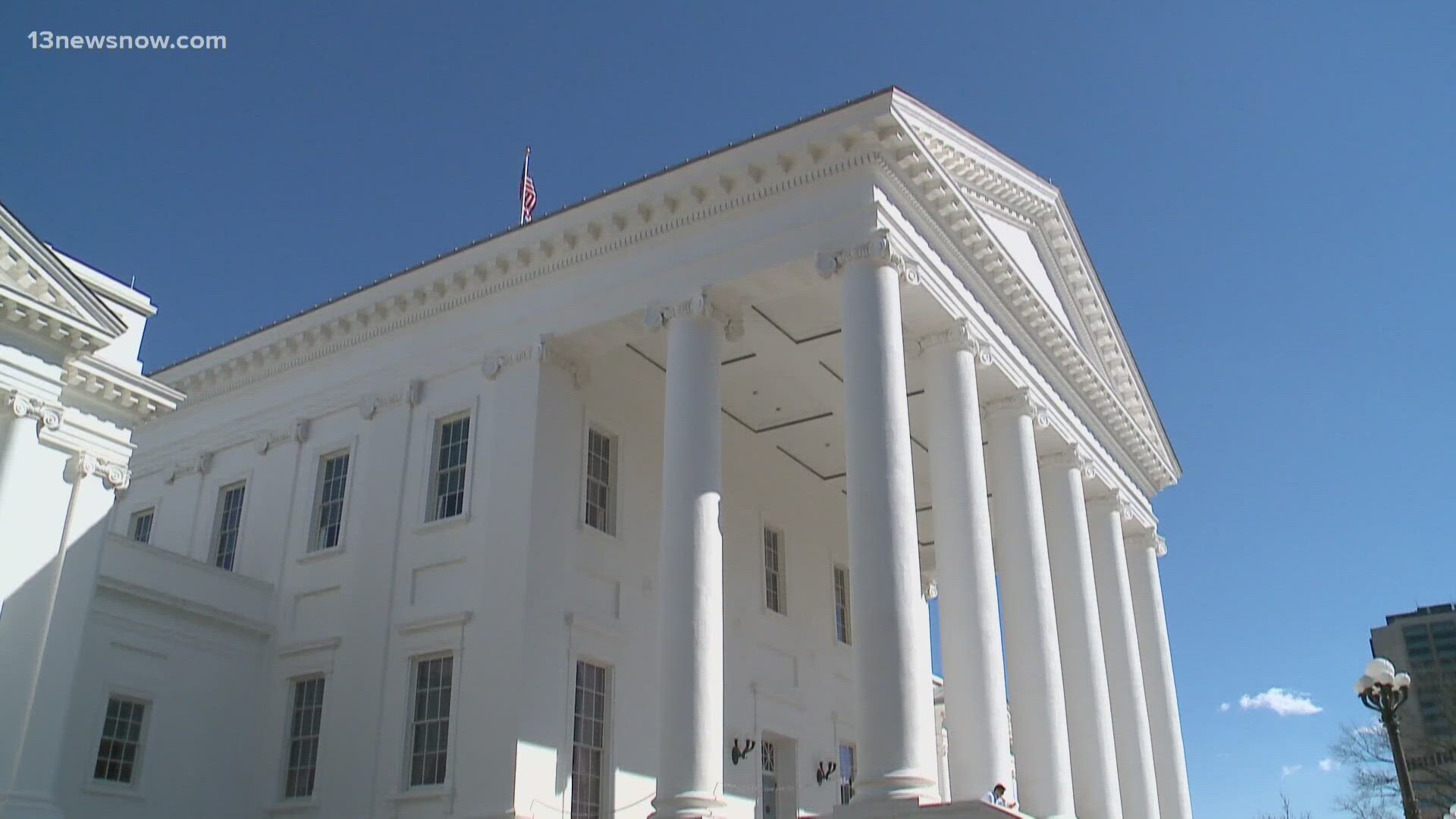NORFOLK, Va. — For an election that had a lot riding on it and was expected to be pivotal in Republican Governor Glenn Youngkin’s potential 2024 presidential run, abortion proved to be the issue that drove many voters to the polls and led to Virginia Democrats taking over both chambers of the General Assembly.
On Tuesday, Democrats swept legislative elections across Virginia, with the party maintaining control of the Senate and flipping the House of Delegates. The outcome is directly at odds with Youngkin's goal of Republicans taking complete control of the state legislature, which some political analysts believe will greatly impact his policies going forward.
Even though Democrats took control of the two chambers, it is holding a slim majority in the Senate as the party lost a seat.
"It was funny that the Senate, which has been like [the Democrats'] 'brick wall,' you know that's what they've been calling it against Youngkin for the past few years, they're actually going to be down from that number in the senate," explained political analyst J. Miles Coleman. "They're going from 22 seats to 21 seats, just a bare majority. So, maybe they have a little crack in their brick wall... but obviously they did not crumble."
Here are three takeaways from Tuesday's election, according to Coleman, who is the associate editor of Sabato's Crystal Ball at the UVA Center for Politics and Dr. Rebecca Bromley-Trujillo, the Research Lab Director for The Wason Center at Christopher Newport University.
Similarities between Virginia's House and Senate
Although Coleman said it was no surprise Democrats held the Senate, their win in the House was not so certain. Prior to Tuesday, political analysts, including Coleman, pointed to Democrats having more ways to reach a majority than their Republican counterparts.
"The results cut a little away from our expectations. In some ways, it was a surprise, and in others, it wasn't," said Coleman.
This election deviated from how Virginia has historically voted in off-year elections. The Virginia electorate has typically voted against the party in the White House.
The legislative sweep suggests that the two state chambers may be more similar than once believed, according to Coleman.
Democratic sweep of legislature could setback Youngkin
This election, Youngkin pushed for a "Republican trifecta" in state government that would support his legislative priorities for the remainder of his term as governor. Despite his campaigning, the Republican party failed to overcome what some described as an uphill battle.
Although Republicans lost the House, Coleman said the party was "barely short." He suggested this was likely thanks to Youngkin's commitment to campaigning over the last several months.
Democratic control of the General Assembly could mean Youngkin will face consistent pushback on issues like voting rights, gun rights, education, and abortion.
Abortion driving force for many voters
Since Roe v. Wade was overturned in June 2022, the Republican party has generally struggled to gain support -- even in these off-year, local elections.
"Republicans attempted a new strategy on the abortion issue that was quite different from what we saw in the 2022 Congressional midterms," Bromley-Trujillo explained. "Governor Youngkin faced it head-on and attempted to brand his party's stance on abortion as the consensus position by suggesting a 15-week limit with exceptions is a reasonable standard. It is clear from these results that the rebranding was not effective."
Coleman reiterated the critical role this issue played in Virginia's election, saying that Democrats were successful in "sounding the alarm" that if Youngkin did get his way, Virginia's legislation would be more similar to that passed in Florida and Texas.
Virginia was not the only state to see abortion play a critical role in how voters cast their ballots this election. Ohio approved a constitutional amendment that protects the right to an abortion and other forms of reproductive healthcare. The seven states that have voted on the issue since it was overturned have all backed abortion access.
Looking ahead
So, what does this mean for the future of politics in Virginia?
Suspicions around Youngkin’s possible go at president next year continued to stir leading up to Tuesday’s election, but political analysts say the loss of the House likely put any possibility of a presidential bid for Youngkin to rest... at least for now.
In a press conference Wednesday afternoon, Youngkin reinforced that he was staying in Virginia.
"My name is not on the ballot in New Hampshire," Youngkin said. "I've not been in Iowa [and] I'm not in South Carolina. I am in Virginia and I look forward to staying focused on Virginia just like I have been."
Looking ahead, however, Coleman thinks Youngkin could still put his name in for president -- it just wouldn't be until at least 2028.
"It may not be as far off as it seems," Coleman suggests.
In a state where a conservative could struggle to maintain backing, Youngkin has stood his ground and is even deemed "popular" as he's maintained a fairly high approval rating as governor.
While the likelihood of Youngkin throwing in his name next year is slim, Coleman said that if it comes down to President Joe Biden and former President Donald Trump in the 2024 presidential race, Virginia will likely vote blue. This prediction stems from the support Biden gained in 2020, beating Trump with 10 points in Virginia.

